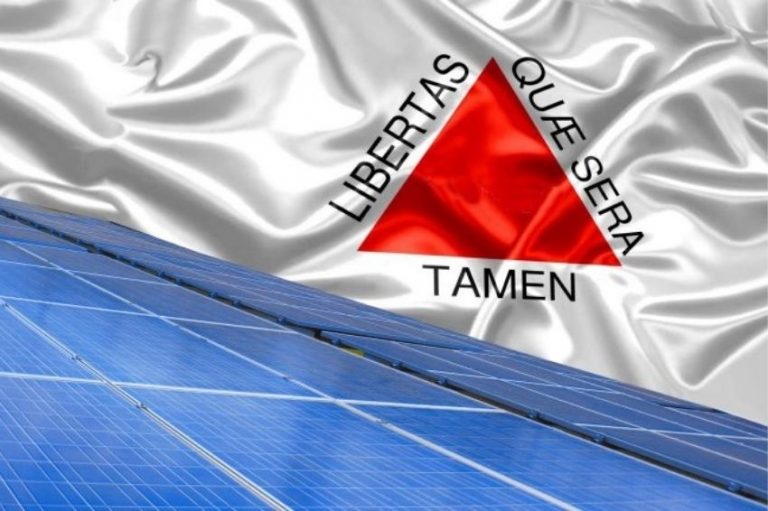In collaboration with Marcelo Tanos*
With the publication of REN 482 (Normative Resolution 482/2012) of ANEEL, since April 17, 2012, the possibility has been established for captive consumers to generate their own electrical energy from renewable sources or qualified cogeneration, and supply the surplus to the distribution network in their location.
This is distributed micro and mini generation of electricity, innovations that combine financial savings, socio-environmental awareness and self-sustainability.
In this regard, it should be noted that electrical energy from distributed micro or mini-generator units does not fall within the constitutionally foreseen incidence of ICMS (Tax on the Circulation of Goods and Services).
Since the basic elements capable of establishing the legal-tax relationship of the state tax are not present, due to the total absence of circulation of merchandise, and in view of the lack of effective transfer of title/ownership of the good in question, which is the electricity.
It is important to highlight that the charge portrayed comes from a mistaken understanding practiced by CONFAZ (National Council for Financial Policy) and, consequently, by the state tax authorities. This distorts the legislator's intention to enable captive consumers (with distributed micro- or mini-generation installed) to generate their own energy, consumed on a non-commercial basis.
Observing REN 482, it indicates that ANEEL took care to prohibit - expressly - any connotation of commercial operation to energy coming from distributed micro and mini generators, keeping in line with the primary objective of the sectoral regulation, which is, to allow the complementary production of energy, to own use, through the compensation system.
It is necessary to clarify, under this point, that electrical energy is not a storable asset, and, given this specificity, the electrical energy compensation system regulated by REN 482 aims to ensure that the amount of energy generated by a unit is, in fact, consumed by the generating unit itself or another unit located in the same concession area (shared generation), highlighting that any attempt to commercialize this energy is expressly prohibited and penalized by ANEEL.
Precisely with the aim of ruling out any possibility of commercialization, REN 482 classifies the surplus energy generation by a given micro or mini-generator unit distributed as a free loan of a fungible asset to the distributor, which must return the asset received at the exact moment the company itself micro or mini-generator unit – or other units located in the same concession area as the local distributor (shared generation) – demand consumption.
Despite the non-incidence of ICMS on such operations being evident, CONFAZ, given the innovation brought by REN 482, edited – in a mistaken and illegitimate way – the CONFAZ Agreement no. 16/2015 and “authorized” the States of the Federation to “exempt” consumers from the incidence of ICMS on such operations:
(…) § 1st The benefit provided for in the caput: I – applies only to the compensation of electrical energy produced by microgeneration and minigeneration defined in the aforementioned resolution, whose installed power is, respectively, less than or equal to 75 kW and greater than 75 kW and less than or equal to 1 MW; (emphasis added)
It turns out that, considering the regulatory and tax aspects applicable to the topic, such operations have never been shown to be subject to ICMS taxation in order to be subject to exemption. In fact, the edition of this resulted in the distortion of regulatory concepts, while the “exemption” does not reflect the power limits and generation modalities contained in REN 482, in addition to leading state tax authorities to a mistaken understanding regarding the supposed incidence of the tax about such operations.
Based on this premise, the state of Minas Gerais published the State Law No. 22,549/2017 and, extrapolating the rule of the CONFAZ agreement, it granted “exemption” – until December 2022 – to consumers with micro or mini distributed generation of photovoltaic solar energy falling within the four modalities currently provided for in REN 482, namely:
- (i) generation close to the load;
- (ii) remote self-consumption;
- (iii) enterprise with multiple consumer units; It is
- (iv) shared generation, with installed power less than or equal to 5 MW.
The law of the state of Minas Gerais left out the source of hydroelectric generation and other renewable sources, to which ICMS “exemption” applies only in the modalities (i) generation alongside the load and (ii) remote self-consumption, with lower installed power or equal to 1 MW.
Having outlined the misunderstanding expressed by CONFAZ on the subject, as well as the consequent false belief of the States of the Federation regarding the incidence of tax on such operations, Agreement 16/2015 and the Minas Gerais state law are based on distorted regulatory concepts for the purposes of “election” of criteria for “granting exemption”, such as installed power, generation modality and ownership of micro or mini-generator units.
In other words, CONFAZ and Minas Gerais legislation emptied the incentive granted by REN 482, discouraging the creation of new sources of renewable energy and causing legal uncertainty for entrepreneurs.
With this, it is concluded that the consumption of electrical energy from consumer units with installed micro or mini-generation – regardless of the source used for generation (solar, hydro, wind, biomass), the verified power (less than or equal to 75 kW – micro-generation ; greater than 75 kW and less than 5 MW – minigeneration) or the chosen modality (generation alongside the load, remote self-consumption, multi-unit enterprise and shared generation) – does not appear to be a taxable event for ICMS, noting that such a charge is revealed. fully subject to questioning before the Judiciary, which has shown itself to be in favor of not imposing the tax.
*Lawyer and Founding Partner of LTSC Sociedade de Advogados, with specialization in Regulatory Law and Energy Law from CEDIN (Center for International Law) and IAED (Institute of Higher Studies in Law). Founding member of ABDEM (Brazilian Association of Energy and Environmental Law) and member of the Natural Gas Committee. Vice-President of the OAB/MG Distributed Generation Law Commission.

















